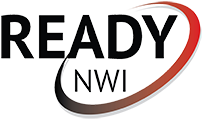Linda Woloshansky, March 17, 2019
As a parent and professional, I have applauded the ongoing work of early learning pioneers over the years who influence childhood development. Recently, I fully embraced this knowledge as fulfilling the future workforce pipeline issue due to new science of early learning involving a team of neuroscientists, psychologists, sociologists, statisticians and economists.
Their groundbreaking studies shine new light on the connection of early learning and the workforce of the future.
Previously, we saw the pipeline as limited to middle school through college students. But now there is even more compelling research which supports that the fundamental development of children to start school earlier is most critical for their ability to be prepared to be good citizens, healthy members of society, and contributes to their success in the workforce.
I have had the privilege of serving as co-chair with Will Glaros of Myers-Glaros for the Strosacker Early Learning Fellows, an initiative launched by Mary Jane Eisenhauer, director of the Purdue Northwest Center for Early Learning. Along with a number of community leaders we took a deep dive into looking through the lens of early learning and its connection to the workforce and talent pipeline over the period of three months. It was an eye-opening experience!
New research shows that the brain of a child in the first three years of life grows by 1 million new neural connections every second of every day. Knowing how the brain develops and ensuring that a child receives the full spectrum of learning strategies up to age 5 is critical, as it will impact the child over a lifetime for everything from health to success in K-12 learning. The research showed children will be better equipped to learn, with less emphasis on remediation and absent of health and behavioral issues as witnessed today. Simply put, the talent pool starts at this young age!
Moreover, economists such as Rob Grunewald of the Federal Reserve Bank of Minneapolis and James Heckman, an economist at the University of Chicago, have shown through their research that there are great economic gains to be had by investing in early childhood development.
Given this new knowledge, the Center of Workforce Innovations is undertaking these new strategies:
• We are underwriting the training of several classes for child care workers in order to prepare them to achieve certificates as Child Care Associates; better preparing them to work with very young children in a preschool setting.
• We will continue to educate and inform the business community why early learning efforts will have a long-term impact on their future workforce.
• In keeping with our “Ready NWI” strategy to prepare students across our 38 public and multiple private school systems for college and career readiness, we will soon explore best practices and initiatives to strengthen early learning in these younger years.
CWI applauds those who have demonstrated support for early learning. We invite the business community to build upon their laudable efforts with enthusiasm for its connection to successful workforce development. As businesses struggle with finding the right workers and we talk about the talent pipeline, recognition of supporting early learning strategies must be part of the conversation, and, more importantly, advocating for early learning programs and full-time education must be part of the pipeline development solution.
Why not make an investment of your time, talent and treasure today to ensure you have a well-trained and skilled workforce tomorrow? The future will be here before you know it.
Linda Woloshansky is president and CEO for Center of Workforce Innovations. The opinions are the writer’s.
View article in the Northwest Indiana Times

